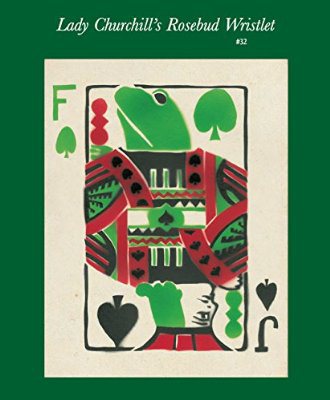In a strange, short-lived return to reviewing, I’ve recently tackled several short fiction venues of great repute and long traditions in the genre publishing scene – Lady Churchill’s Rosebud Wristlet and Asimov’s Science Fiction. It took me a significant time to sit down and put my thoughts into a discourse that didn’t exhaust itself with ‘I (don’t) like this’.
Why I remember now why I stepped as a regular reviewer, I can’t help but get excited when I am presented the opportunity to analyze short fiction. Both reviews are up at SF Signal.

Here’s what I thought of Lady Churchill’s Rosebud Wristlet #32:
I admit I haven’t read an issue of Lady Churchill’s Rosebud Wristlet, albeit having heard it is a must for readers who appreciate short fiction that doesn’t necessarily play to established conventions in fantasy, science fiction and all that’s in between the spectrum. People haven’t lied to me, thankfully, because none of the eight short stories featured in issue #32 released in June (yes, I’m a bit overdue with this review) seek to burn fast and bright or draw their power from the now all-familiar and anticipated high tension, high drama or breakneck pacing.
No, their embrace is slow, careful and deliberate. These stories draw their power from the quietness of their writers’ language. They are meant to be drawn out during reading, savored and once you finish each, sit with the story in silence before you start the next. Reading Lady Churchill’s Rosebud Wristlet calls for a different mode of reading altogether, where you as the reader have to make the conscious decision to get lost in the stories, no matter how short they are, and forego any rushing.
I wasn’t as taken with the June issue of Asimov’s Science Fiction though:
The great strength of short fiction is its length – a counterintuitive argument as it’s often the matter of length that has people champion novels as the superior form and dismiss short fiction as thin and shallow. But short fiction’s power lies in the ability to compensate for its brevity and conjure a full world rich in possibility, emotion and consequences in the confines of so few pages. That’s what’s so electrifying about short fiction. There’s a lot a short story needs to accomplish to truly be alive and that’s why the short form is hard to master.
Even experienced writers struggle with the short form and it takes one miscalculation or a missed opportunity to stump a promising story. It’s mostly what happens with the stories in this issue of Asimov’s Science Fiction Magazine.
I hope before the end of December to have reviews for an issue of F&SF Magazine, “The Best of Spanish Steampunk” and “Lament for the Afterlife” by Lisa L. Hannett. All will appear on SF Signal.
I have been invited to participate in the Weird Fiction Review’s roundup of books and here you can look out for a December series on what I’ve been reading.

Be First to Comment